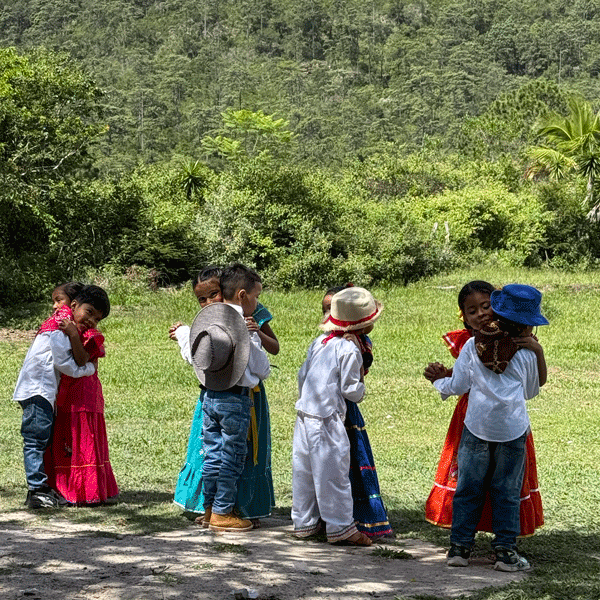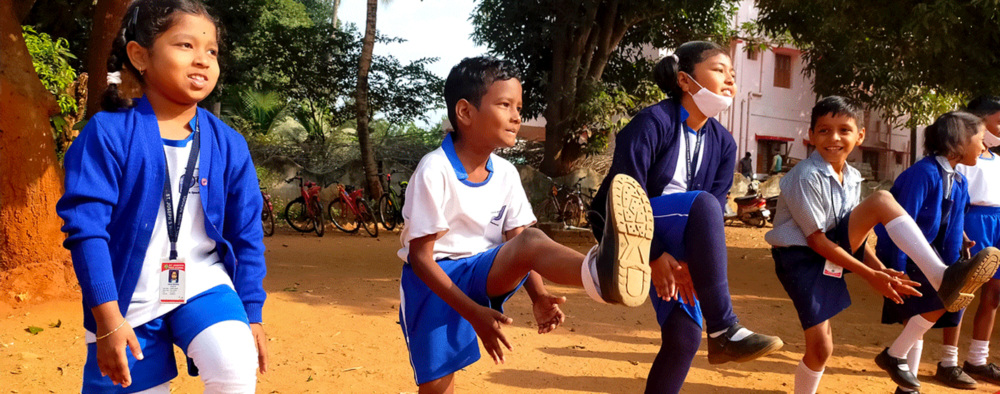
Education
Education
Meaningful child participation enhances children’s self-confidence, cognitive abilities, and respect for others, laying the foundation for empowered children and adults. A 2023 GFC survey with partners from the Partnership to Educate All Kids (PEAK) initiative revealed insights into the practice and understanding of meaningful child participation in Africa, the Americas, and Asia. Supported by the LEGO Foundation, the PEAK initiative fosters the learning and development of children aged 6 to 12, with a focus on play. The survey’s findings highlight our partners’ belief in the importance of involving children not just symbolically, but meaningfully.

Through the survey, our partners shared examples of how they have provided opportunities for meaningful child participation in their work. One focus is on fostering leadership and decision-making among children. In Africa, this includes opportunities for children to take on leadership roles and assume ownership and responsibility in programs. Move the World in Ghana and Creative Hands Zambia have children lead session activities and choose leaders among themselves. Partners in the Americas emphasize child-driven activities and decision-making. For instance, Organización Sololateca in Guatemala engages girl representatives from the communities to provide strategic advice. Asia partners like Jubayer Masud Educational & Charitable Trust and Suchana: The Uttor Chandipur Community Society in India, as well as Bloom Nepal Schools, focus on honing children’s leadership skills and fostering child-led initiatives.
Child-centered engagement is another theme emerging from the survey. Africa partners employ creative learning methods and use educational spaces to encourage children to express ideas. Partners in the Americas prioritize children’s safety and wellbeing and implement child-friendly feedback mechanisms. Asia partners emphasize active participation in learning and curriculum development.
In the survey, partners were asked to score a set of statements from 1 (strongly disagree) to 5 (strongly agree). The following three sections look more deeply into how our partners understand and ensure meaningful child participation in each region.

The survey findings show a diverse approach to including children in programs. There is strong agreement on the importance of actively listening to children to build trust and strengthen relationships. There is also solid agreement on the importance of engaging children in program design and encouraging them to voice their opinions.
Partners highlighted activities that emphasize inclusivity, educational engagement, and leadership development. Creative Hands Zambia cultivates leadership through initiatives such as school-based paper-folding clubs where students elect their leaders. When children participate in choosing educational programs and designing play areas, their sense of ownership and accountability is enhanced. For instance, BaNgaAfayo Initiative Uganda reports improved attendance and retention due to active child involvement.

In the Americas, there is an emphasis on increasing child agency and fostering open communication. Partners agree that children feel their voices are being heard, which strengthens relationships. There is also agreement on the need for children to be involved in program design and freely express their opinions in order to increase their participation and foster a sense of ownership. Examples of meaningful child participation include NEDUC in Brazil, where children vote on activities during plenary sessions, and Futuro Vivo in Guatemala, which reintroduced theater at the children’s request. MARE in Colombia uses “El buzón indomable” (the Indomitable Mailbox) for anonymous feedback, fostering open communication.

The highest scores in Asia emerge from agreement on listening to children in order to build trust and strengthen relationships. This practice is supported by the acknowledgment that children feel heard, highlighting successful communication practices. Partners also agree on the critical role of children in designing programs. Jubayer Masud Educational & Charitable Trust involves children in setting up fairs, while has a children’s parliament for decision-making during school assemblies. Bloom Nepal School provided a strong example of child action: for Children’s Day 2023, children organized an event focused on gender equality and social inclusion to demonstrate to out-of-school children the learning opportunities available at Bloom. They planned a play, dances, and speeches – all performed by the children themselves.
Partners across all regions report integrating children into decision-making processes, fostering their leadership and active participation. Children are not just passive participants; they are standing up and making their voices heard, assuming leadership positions, and providing real and honest feedback to partners. They are shaping their futures and creating lasting change, embodying the potential of empowered young leaders. Together with our partners, we are witnessing the transformative power of meaningful child participation.
Header photo: Pupils from St. Joseph’s High School at Jokalandi in Bhubaneswar, India warming up before a session. © Pro Sport Development.
